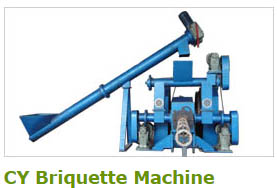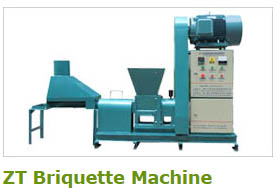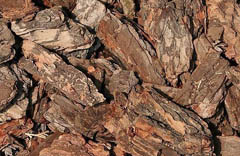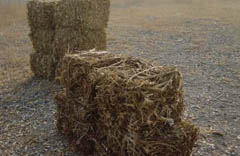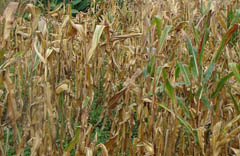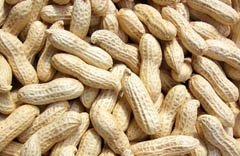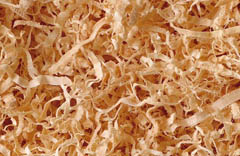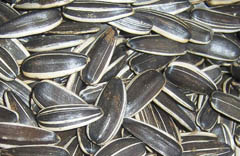Briquette Press Development Opportunities---II
Briquette Press Development Opportunities--II
With the development of society and economy, fuels are becoming more and more expensive. Although fossil fuels can satisfy our needs of fuel, they are too expensive and also pollute our environment. Therefore, people start to turn their attention from fossil fuels to biomass fuels and efficient bio fuel production is only possible through
biomass briquette machine which is the best renewable source to earn revenue from green waste.
With the price of conventional fuels like natural gas, black coal, lignite is rising, the new renewable energy sources start to get people’s attention and many people begin to engaged in biomass fuel business. In agriculture based countries, briquette plant project is economically viable because there are lots of agriculture wastes and that plant uses biomass and agriculture waste as raw material and produce biomass briquettes as a kind of clean, renewable and environment friendly energy bio fuel.
Market Opportunities
While carbonised briquettes are preferable for urban domestic consumers due to their smokeless use and compatibility with charcoal stoves, there are largely untapped opportunities for noncarbonised briquettes. These can be a more appropriate product for institutions and restaurants where indoor air pollution can be properly controlled. Indeed carbonisation can be a costly and energy inefficient process for applications where smoke can be controlled. Non-carbonised briquettes can also serve as a replacement for domestic firewood (still used by 82% of the population) but these would need to be sold in combination with compatible stoves. And Kingman is capable of offering both briquette press and briquette plant. Besides, carbonizing furnace can be provided as well according to your demands.
Link to Briquette Press Development Opportunities--II
Difficult distribution and low consumer awareness in rural areas present further barriers to exploiting this market. An additional constraint at a small scale is that locally made machinery is ineffective at compacting non-carbonised material, so these opportunities are best realised by larger producers who can import appropriate briquette press or briquette plant as a while, even carbonizing furnace. The opportunity presented by middle-class consumers. This is a market segment that is growing quickly, is less sensitive to price and can be exploited by marketing products for barbecue or garden fuel and selling through supermarkets.
Link to Carbonizing Furnace
A further opportunity worth exploring is fuel supply to small scale industries. Rural industries are increasingly making use of raw biomass as fuel for boilers and biomass cogeneration plants. For example, Uganda Clays use raw coffee husks to fuel their brick firing kilns and Kakira Sugar Works and Kinyara Sugar Works, two of the largest sugar factories in the country, produce electricity from boilers fuelled by raw bagasse. In industrialised countries briquettes are preferred for use in biomass boilers as they offer superior and well controlled burning characteristics. In Uganda however, where unprocessed biomass is available in large quantities, it is generally more economical to burn it raw. Despite the extra expense of a processed fuel and the need for compatible boilers, increased attention to energy efficiency may make a case for briquettes. This is an area that requires more detailed market research and analysis.
Machine Fabrication
There are hundreds of micro-scale producers making briquettes with manual equipment and many of these entrepreneurs are seeking to scale up their production but there is short supply of locally fabricated motorised briquette machines. Reliable compaction machines with capacities of 800-1000 kg/day are required. This presents a huge opportunity for briquette machine fabricators who can develop machines and lease or sell them to smaller entrepreneurs. Briquette press and briquette plant suppliers can play a pivotal role in the briquettes value chain and it is important that they can increase their visibility and to market themselves.
Market Segmentation
Institutions, households, restaurants and farmers all have different heating requirements and by meeting those needs briquettes will become more attractive to them. Customisation through blending feedstocks will also provide briquettes with a competitive advantage over conventional charcoal. Better market research is required to assess consumer requirements across the main market segments in order to tailor briquette products for their use.
Financial requirements
In addition small and medium briquette businesses have the following financial requirements;
-
Working capital to procure feedstock and meet operating costs (including quality assurance and maintenance), in order to generate sufficient inventory to manage demand fluctuations, and bridge the gap until payment from commercial clients who demand credit. The size of such facilities at the various stages of enterprise development identified in the briquetting sector earlier, are subject to more detailed financial analysis of individual entrepreneur’s operations.
-
Capital expenditure financing to support cost of stepping up the equipment ladder
-
Capital expenditure to establish and expand operations – mostly for drying space and secure storage
! KMEC is capable of offering a package of project with delicate designs and high-quality briquette equipment to move forward with clients from all over the world! Please feel free to contact us.
------------------------------------------------------------------------------------------------------------
KMEC is specialized in manufacturing and providing a number of biomass briquetting equipment such as briquetting machine and pellet mill.
